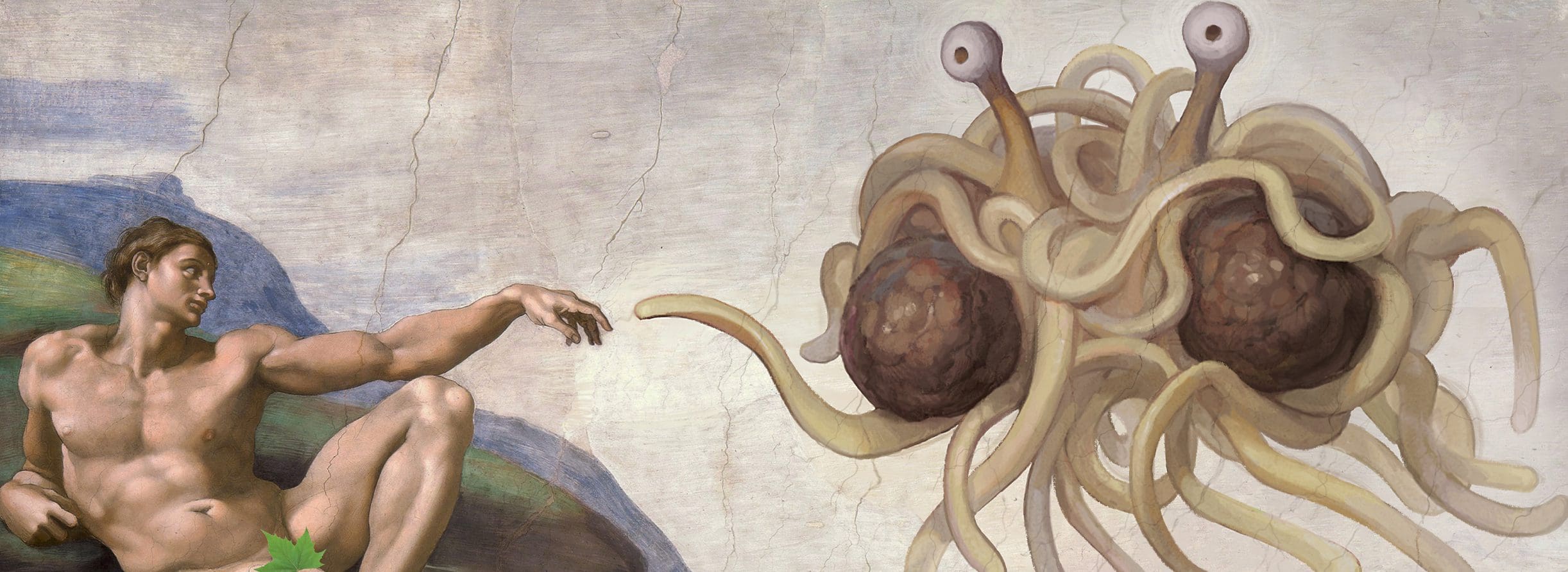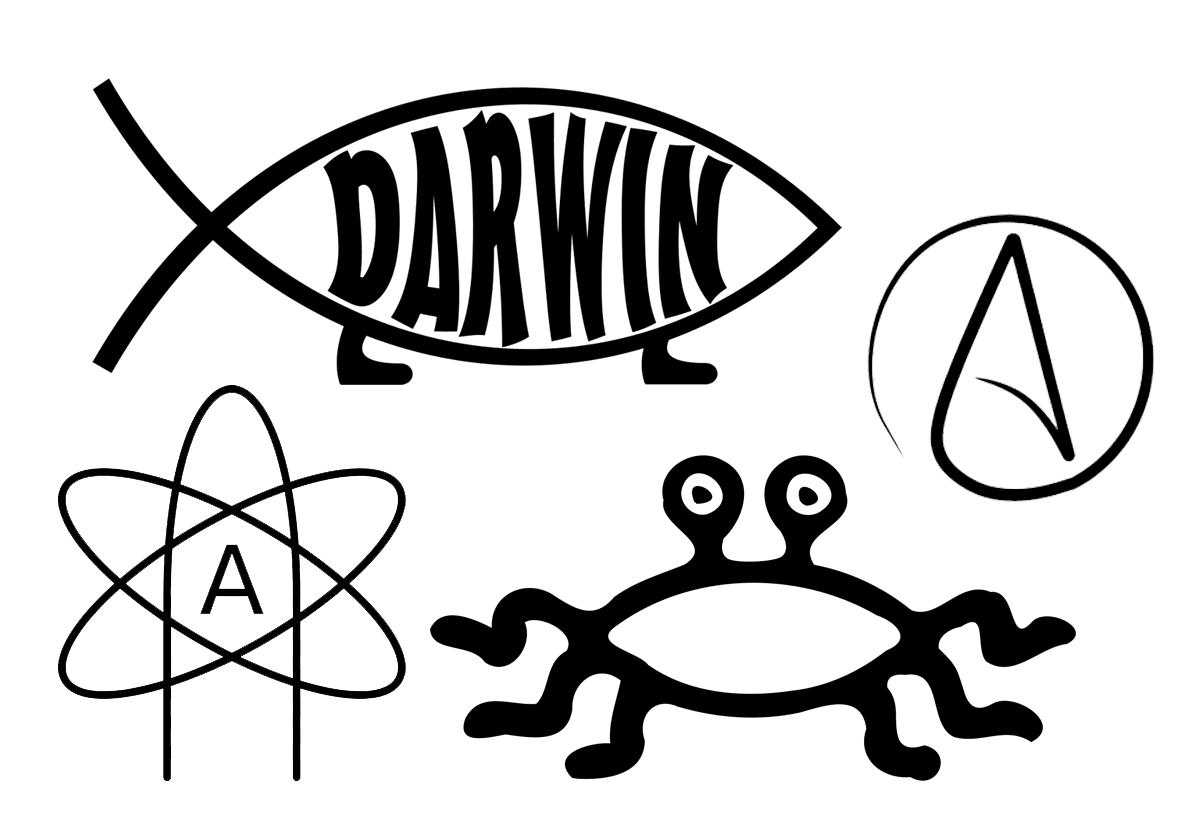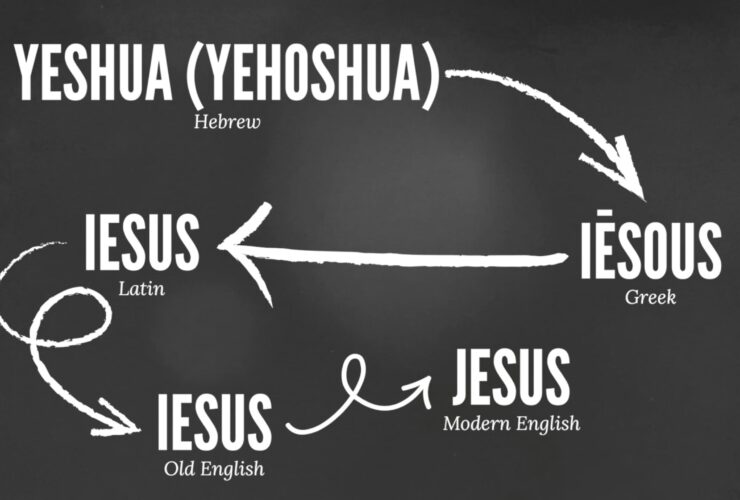Over recent decades, New Atheism evolved from a small elite group of militant anti-theists known as the Four Horsemen of Atheism – Christopher Hitchens, Sam Harris, Daniel Dennett, Richard Dawkins – into a broad sweeping social attitude, a spirit even, characterized by its “reasonable” rebellion against religion, its claim to science as the only source of knowledge, and that atheism is a lack of belief in God (not a belief in itself) and, therefore, the true default view of all people. Naturalism is the entrée, and religion is just a cherry on top. Most notoriously, champions of New Atheism take the moral high ground and fervently argue that all religions are toxic, pathological, and uniquely dangerous due to their irrational and immoral claims[1]. Its prevailing attitude imparts an appetite for mockery, contempt, and hate that continues to inspire social movements and scoffing young “evangelists” aiming to destroy Christian growth. Unfortunately, while the Four Horsemen have all but fallen off the map save Dawkins (and a dash of Harris), the Internet has kept the spirit of condescension and scorn alive, seeping into the political arena and influencing our cultural milieu in significant ways. In fact, its expansive political goals and activisms are what mark “new” atheism from “old” atheism[2].
Consider; it’s pretty household nowadays, as tea is to luncheon or spaghetti is to meatballs, to liken the Judeo-Christian God to a fable, fairy tale, daydream, wishful thinking or psychological disorder. Come to think of it, it’s still the most reheated dish to come out of New Atheism to date. Perhaps, you’ve seen the billboards, “There’s probably no god. Now stop worrying and enjoy your life”[3], or the subtle protests like the little Darwin fish plastered on the back bumper of cars or the scarlet letter “A” here and there. But some fashion statements have made bigger splashes than others. If you are curious as to which hot button item on the menu I’m pointing to, it’s the “flying spaghetti monster” plated and served in full force after a theist mentions the Chef upstairs, “Just because you say I should believe in a god, does not mean I should believe in a flying spaghetti monster!” –– Got me there! For many, this simple jest only whetted the appetite to jump onboard a gravy train of contempt, which then packed enough passengers to convert into the Church of the Flying Spaghetti Monster. For all their vim and vinegar in the fight for legal recognition, members of Pastafarianism characterize piety better than many Christians. Full steam ahead; hellbent on hardboiled cynicism, devout in bitter judgment, ridiculing believers down to the bone. They can dish it out, but why would anyone want to stomach it? Well, no doubt, those who flummox conviction for heartburn cannot be discounted.
While their day-to-day tummy grumbling emerges from a malnourished dispensation of disdain and revelry – brought to you by a surplus of Western privilege – it is ultimately nothing shy of pedestrian. Just street meat polemic that, ironically, drools over ‘all-natural’ evidence to spice up its menu’s flavour profile.
“Mock them, ridicule them… in public! Don’t fall for the convention that we’re all too polite to talk about religion.”
Richard Dawkins
Richard Dawkins, perhaps the most well-known militant atheist, was not slow to overstuff his support at his “Reason Rally” in Washington D.C., “Mock them, ridicule them… in public! Don’t fall for the convention that we’re all too polite to talk about religion. Religion is not off the table. Religion is not off limits. Religion makes specific claims about the universe which need to be substantiated and need to be challenged, and if necessary, need to be ridiculed with contempt.”[4] To clarify, “We need to go further: go beyond humorous ridicule, sharpen our barbs to a point where they really hurt…. [Fence sitters] are likely to be swayed by a display of naked contempt. Nobody likes to be laughed at. Nobody wants to be the butt of contempt.”[5] –––Tums, anyone? In a gung-ho effort to serve the community as a public butcher, he strongly recommends you ought to, in principle: sharpen your cleaver, bully about, and mince your own integrity in the progress. With such encouraging words from the pulpit, you may wonder if serving heated antagonism is a good way to fill seats. It seems to me, at least, that it would only push sincere people away from atheism and then feed the very thing they want to slaughter: Unreasonable, stubborn, blind faith. Then again, if blind forces weren’t determining all our decisions, we might have a chance to change our minds.
Whether it is a rally or church parody, this “religion poisons everything”[6] creed promulgates a gruelling and gratuitous disrespect towards our neighbour, and ought to empirically demonstrate, to any self-reflective person, a smug complacency of false confidence and bloated reluctance to be open minded – puffed up, swollen, and full to the belly on self-indulgence and dissatisfaction. Another bite could never do. So, what do they do? Vacuum seal those leftover remarks and repackage it as fresh meat for all who find pleasure in the mock du jour–––just more daily bread I suppose.
More than just mere dysphoria or cognitive dissonance, New Atheism’s peculiar strand of cynicism displays the earmarks, or bitemarks, as it were, of intellectual cannibalism. It pillages honest inquiry from the households of unsuspecting skeptics, preys on the doubtful for emotional support, chews on morality for its own social welfare, and swallows the stuff that makes us human for its own survival and has yet to fill its belly, leaving nothing but a windbag in its wake. Always full, but never filled. It’s a fruitless, cowardly, hopeless gluttony and it will always come back for more.

Out of the Frying Pan into the Fire
As fate would have it, that infamous false dilemma between science and faith is brought to the forefront, with all fingers pointed at Christianity: God has no place in science! Although the “God hypothesis” is supposedly laughable, the voice boxes of New Atheism and mainstream science nevertheless gorge themselves in unfalsifiable thought experiments that masquerade as science, ones that clearly take a religious turn. As physicists, technologists and futurologists preach there is no God and a 50% chance that we are living in a computer simulation[7], they unwittingly pedestal themselves as the gods over this VR simulacrum[8]; a ghost behind the machine, testing human intelligence with AI, safety goggles, clipboards, lab coats, and above all, a furrowed highbrow. While they still muster the audacity to smugly recoil at the inadequacy of nature, accusing God for not getting it right the first time, there’s a 50% chance that they didn’t do such a good job either. In fact, given that they believe God is almost certainly surreal, it’s virtually an admission of guilt. As the de facto creators of God, they are the authors of a wickedly cruel false hope for billions, the masters over our moral decisions and disparity – the burden of proof for poor design rests entirely on their shoulders.
This view is, then, buttered by pop-intellectuals who spread biological determinism and epistemological scepticism in the name of science, both of which entail a lack of moral responsibility and the existential crisis that there is no objective knowledge whatsoever. Advocating that ‘consciousness is an illusion’ or a trick of the brain as Dennett thinks it, ‘there is no moral truth or actual justice’ as Dawkins and PZ Myers say, or even so far as to fuel uncertainty about the reality of the external world and that other minds exist as anything more than surreal – all is a matter of personal interpretation and you cannot, by nature, think otherwise. Mark their words! Naturalism, atheism, scientism, it’s true, all of it. Just be rational.
I can’t help but think; would this belief, then, not render everything a matter of blind faith? As blind forces dictate your every move, the line between fact and faith is blurrier than it was before; it is a peculiar kind of faith mind you, uninhibited by misinterpretation. If the blind were leading the blind before, this is next level. Worse yet, it is a faith that hinges upon our brain and five senses being coherently “fine-tuned” by random, arbitrary, blind forces of gratuitous evolution. We can hardly trust our senses let alone our faith in them–––it’s a faith that pops out of the frying pan into the fire.
What are we left with? The very same who grumble, “Why won’t god just show himself to Me!” as they split their peas from their potatoes, do not even care to acknowledge the plain fact that they have already deemed God a simulation, hallucination, or psychological disorder. So, what good would a bottle of medication do? Yet, even if a divine experience was the result of psychosis, requiring proof from other minds to know if the proof is truly in the pudding, how can a naturalist rely on the coherency and sound judgment of other minds if all minds are subject to questionable reliability? Is mass hysteria or mass psychosis not what militant atheists claim the apostles experienced after Jesus Christ was crucified? They all “saw” Jesus rise in the flesh, caused severe distress, and gained converts through a psychological disorder. How would, then, seeing God with their own eyes change anything if there is always an alternative natural explanation. Furthermore, why should one’s imagination be morally wrong if we are in a simulation, if it is natural or intuitive to think there is a God, or if wishful thinking is openly encouraged; especially nowadays when it is normative to believe, cultivate, and advocate moral relativism, that personalized moral opinions are brute moral facts. Belief in God is good, then, no?


Moral Progress of Scientism
If we embrace atheism dogmatically and reject objective moral imperatives to determine right from wrong, we are left with a primordial soup of no truth to differentiate the ups from downs. The inevitable result of which stirs moral facts into a melting pot of opinions and emotivism, reduces good and evil into pros and cons, and makes truth self-referential and hypothetical, all of which is perpetuated by an ever-evolving culture and contradictory milieu – symptomatic yet solipsistic. Moral truth is chained to consensus yet bound to self-awareness. That is one way to say, the more mainstream the thought, the “truer” it is, and yet truth begins and ends in self (“your truth”, as they say). And if that is the case, then God is true moreover, which, again, bitingly shows a hearty misunderstanding on the subject. So! If God is really, at bottom, like any other half-baked belief – Santa Claus, Tooth Fairy, Easter Bunny, a flying spaghetti monster – why then is there such unpalatable hostility?
The rationale behind Dawkins’ callous (countless?) powerplay seems to be, to me at least, that religious motivations are so emotionally manipulative in society that only social ridicule can convince us otherwise. We need to be collectively manipulated out of religion, like we were peer-pressured into it by, say, our parents–––fair enough, Doc. Though, I suspect the faint motherly cry of “two wrongs don’t make a right” would spring to mind, it is true that there are some religious leaders who exploit this; they abuse a perceived sense of authority in the name of what’s true. But it still doesn’t cut the mustard. Popular atheists of the academic and scientific community – namely the Four Horsemen – many of whom are likewise taken as inerrant oracles of the new priestly class, are notoriously guilty of this emotional manipulation as well (even rallying about it…not to mention any names).
In the context of New Atheism, morality is just an emotional push, this way or that. While happiness is often thought the highest of virtues, it makes you wonder who is allowed to obtain it if impartiality is no longer an integral quality of justice. Those who believe in God do not deserve it, apparently. By emotionally mocking and ridiculing those they disagree with in a public setting, they tacitly reduce moral worth to a mere social status or relation. In other words, moral truth is just emotional tension, so demoralize them. Dawkins is doing us all a very big favour, you see. We are in his debt.
It also forces you to ponder a bit; if everything is by driven by blind, unguided chance with no purpose, no intention, no moral truth to point to, why does it matter if religious folk strongly oppose the “progress” of science? Should the average person be peer pressured to believe in something they know little about? Laymen have no moral obligation to the sciences. Especially not to the historical sciences and its naturalistic origin of life and cosmos–––the infinitesimal chance that nature just so happened to create itself, its laws, its forces, its matter, consciousness, and the like. And what progress, exactly, are we referring to here then? Technological progress, sure. Medical progress, no doubt. But “moral progress”? It certainly cannot be actual progress, that would mean we know where we’re going is truly better than where we were before–––and moral truth is anything but acceptable in the secular scientific community. Nevertheless, it’s a progress that precariously protests moral truth and has the audacity to march in the name of science and moral progress, as if the two are one and the same[9]. The spirit of which harkens back to famous atheist philosopher Bertrand Russel who described Christianity as “the principal enemy of moral progress in the world”[10] and yet denied moral truth. Such a brazen, self-contradictory truth claim is astonishing.
The pervasive misnomer that material facts are more real than moral facts is, of course, the bread and butter of scientism, the belief that “scientists are superior to all other men.”[11] We mere mortals are but dust, left to the iron chefs of science to duke out our moral codes for us–––coiling their noodly appendages around our meagre little minds so we can wrap our heads around their God-given brilliance. Naturally enough, there is more to this “progress” than meets the eye. To spew that religion is the linchpin of the world’s problems is just as fallacious, religious even, to assume science is its saviour.
While the new tabloid of Western freedom is that all religions are toxic, pathological, irrational, immoral and dangerous, we, however, are left to draw the obvious conclusion: Atheism, new or not, does not have a real reason why they should not mock, ridicule, slander or disparage – and that seems to be their reason all the more. Why, you wonder? Well, why not? If the opportunity presents itself, go for it. There is no real fundamental objection in nature, mind, or science to flagrantly renounce morality and human dignity, and no obligation to retain it, either, as if there was any to begin with. You are a worthless and meaningless flub who just so happened to bubble out of an overheated primordial broth, and we are only getting colder. That is their religion.
While God is painted a wishful uneducated fantasy, the sheer fact that the universe began to exist at all and is incomprehensibly fine-tuned to sustain life is nothing shy of miraculous–––all intuition shouts intentional. But we cannot have that now, can we? Miracles are a direct violation of the laws of nature. What should we say, then? Are we violating the second law of thermodynamics by cleaning up after ourselves? Are we abusing natural selection through self-sacrifice? Or disavowing ecological advantage through altruism? And am I, or anyone, morally obligated to follow this scientistic morality formed by blind random forces? Am I morally culpable for rejecting it? I think we’ve made a lot of progress here today.
Instead, this New Atheist rhetoric militarizes pontification on these vital issues, divulges that shame tactics in society is the polemical stranglehold for militant atheists, shows a sincere lack of care and a cold, crass apathy for the greater society of those who disagree with their opinion (such as those “Jesus freaks” who are, in their view, delusional, mentally ill, and in deep need of psychiatric help), and exposes the common ground morality and hypocrisy share if atheism is fully embraced.
I suppose in a world where purpose is an accident, love is an appetite, sincerity is a defense mechanism, altruism is playing your cards right, evil is your stomach growling, conscience is perpendicular to reason, intuition is a stiff-necked illusion, a theory is more advantageous than truth, and cooking supper is equally as virtuous as eating somebody else’s, it begs the question: If anything can be cooked up in a primordial soup, what does everything boil down to?–––Food for thought.

Matlock Bobechko is the Chief Operating/Creative Officer of Bible Discovery. He is an eclectic Christian thinker and writer, award-winning screenwriter and short filmmaker. He writes a blog on theology, apologetics, and philosophy called Meet Me at the Oak. He is also an Elder at his local church.
In 1953, outspoken atheists James Watson and Francis Crick stood on the shoulders of Swiss chemist Friedrich Miescher among others to prove the double-helix structure of DNA, the “molecule of heredity”. It would make way for the rise of molecular biology, genetic engineering, biotechnology, the soft chants of gene therapy, and forever reshape the twisted ladder into a modern icon of science[1]. Kudos. But there was a problem. Like the apple falling on Newton’s head, a visible language structure was effortlessly made out, and exploded right in their face like a flying piece of pie. This would not do. The origin of life, its purpose and apparent design seemed too self-evident. This was a big problem for Crick and his colleague Leslie Orgel, a biochemist of like temperament. So, what was their alleged proposal? –– Flying saucers. Yes, aliens. Little grey men (presumably) had deliberately infected earth billions of years ago and flew away. This was an immediate alternative and intellectually satisfying explanation for the simplicity and universality of our genetic code. It was too elegant, and God was not an option. The Directed Panspermia theory was first presented at the conference on Communication with Extraterrestrial Intelligence in front of Carl Sagan[2]. They liked it. It flew! The theory was plausible.
Scientific? To call it a theory is far too becoming. To call it scientific is silly. And this is not because aliens are implausible. It is that there is no evidence to even infer aliens as the cause of life. The writing is on the wall. If atheism were actually the natural default worldview and neutral in its pursuit for true knowledge, then whether it is God or aliens at the source in the origin of life is, again, redundant. When It’s advantageous to appeal to mystery as a brute fact, “aliens” fill in the gap quite nicely. Because, at the end of the day, there is a gap that needs to be filled, and it is better to have something fill in the gap than nothing–––and yet, absolutely nothing is the cause of everything. So, how come God hinders science but nothingness does not? The same old nudging polemic collapses into itself like a dying star. Directed Panspermia theory is of the same substance. It is a passing thought dispatched as a hypothesis that sets out to answer nothing. Instead, it shifts the problem elsewhere and avoids the most honest, intuitive, and ultimate inference we all draw when a language exists at the center of life itself: God’s hand.
Not so fast! Hold the phone! Don’t move… Invisible language or not, super intelligence and hyperdrive is all that’s needed here. Warp speed might be a necessary condition, too, galactically speaking. Fermi’s paradox is highly speculative. Don’t be xenophobic. There’s no teleological basis for DNA, there’s no purpose or meaning behind it, no good, no evil. I’m almost certain of it. Biology tells me so!
Funny that, in spite of the brute fact that there is no scientific basis to support the belief that non-life can create life, no observable, experimental, or empirical evidence to even suggest the laws of physics can create life, no initial mechanism anywhere to be found to even propose that the universe itself can create life (let alone itself), here we are: Aliens did it.
I ask you, what is more dogmatic, what is more religious: Crafting a “theory” out of thin air to provide an alternative explanation for the origin of life or just letting God be probable? If living organisms “appear to have been carefully and artfully designed,”[3] what exactly is our intuition guilty of? Either adhering to Ockham’s razor or trusting our gut like any other primate. God as an explanation for all things is simple, intuitive, elegant, and satisfies the extremely complex interplay between our basic everyday experience and the laws of nature that govern our perception of reality. Instead, Crick thinks that a biologist’s brain ought to be “immunized” against intelligent design because such thinking is embedded naturally. God forbid! For good measure: “We have a prior commitment, a commitment to materialism. It is not that the methods and institutions of science somehow compel us to accept a material explanation of the phenomenal world, but, on the contrary, that we are forced by our a priori adherence to material causes to create an apparatus of investigation and a set of concepts that produce material explanations, no matter how counter-intuitive, no matter how mystifying to the uninitiated. Moreover, that materialism is absolute, for we cannot allow a Divine Foot in the door.”[4]
Don’t worry; after death, little grey halflings with enormous brains and tiny blond combovers will hover above our rotting corpses’, finger point, and hold us all genetically accountable for our brazen impertinence, lack of political correctness, and environmental debauchery. If only we had known!
But there’s a twist. The aliens are humanoid… are they… yes. They’re human, too human; from the future. Homo alienus.
Wait. I see it now… My G––I’m woke. It’s all connected–––the simulation, aliens–––all of it.
But wait, there’s more. They’re wearing lab coats, check marking dossiers, talking amongst themselves, and peaking over their shoulders–––Oh no. I’m doomed.
A militant atheist can throw “Who made God?” around like a fact, but the question of “Who made the aliens?” is all the more troublesome, given the fact that the universe – space, time, matter, energy, gravity, force, consciousness, everything – exploded into existence like popcorn without a kernel.
It’s a faith that pops out of the flying pan into the fire.
https://profiles.nlm.nih.gov/spotlight/sc/feature/doublehelix
https://blogs.scientificamerican.com/guest-blog/the-origins-of-directed-panspermia/
“Our willingness to accept scientific claims that are against common sense is the key to an understanding of the real struggle between science and the supernatural. We take the side of science in spite of the patent absurdity of some of its constructs, in spite of its failure to fulfill many of its extravagant promises of health and life, in spite of the tolerance of the scientific community for unsubstantiated just-so stories, because we have a prior commitment, a commitment to materialism. It is not that the methods and institutions of science somehow compel us to accept a material explanation of the phenomenal world, but, on the contrary, that we are forced by our a priori adherence to material causes to create an apparatus of investigation and a set of concepts that produce material explanations, no matter how counter-intuitive, no matter how mystifying to the uninitiated. Moreover, that materialism is absolute, for we cannot allow a Divine Foot in the door. The eminent Kant scholar Lewis Beck used to say that anyone who could believe in God could believe in anything. To appeal to an omnipotent deity is to allow that at any moment the regularities of nature may be ruptured, that miracles may happen.”
[1] Steven Kettell, What’s really new about New Atheism? Palgrave Commun 2, 16099 (2016). https://doi.org/10.1057/palcomms.2016.99
[2] Atheism is far from new. The term “atheism” comes from the Greek “atheos”, meaning “godless” or “without gods”, and was condemned in ancient Greece as well as most (if not all) societies throughout history because it directly opposed or, at least, indicated rebellion against the State (status quo). Also consider Communism, Marxism, Maoism, Nazism, and other atheistic political systems.
[3] This slogan launched in London, England in 2009 with a bus campaign and billboard advertisements as a way to encourage atheists to “come out” of hiding and take to the streets.
[4] On 24 March 2012 at 2:55 PM, Richard Dawkins propagated militant atheism at the “Reason Rally”, encouraging his audience to “Mock them [believers], ridicule them in public.” https://www.youtube.com/watch?v=uPqqp8KVuQU
[5] Alvin Plantinga, Where the Conflict Really Lies: Science, Religion & Naturalism, 45-46. Footnote 24, Chapter 2. (Comment #368197 at richarddawkins.net, comment 16 Wednesday, April 22, 2009)
[6] Christopher Hitchens, God Is Not Great: How Religion Poisons Everything.
[7] Anil Ananthaswamy, Do We Live in a Simulation? Chances Are about 50–50 Gauging whether or not we dwell inside someone else’s computer may come down to advanced AI research—or measurements at the frontiers of cosmology. Published on October 13, 2020. Scientific American.
https://www.scientificamerican.com/article/do-we-live-in-a-simulation-chances-are-about-50-50/
[8] “[I]t could be the case that the vast majority of minds like ours do not belong to the original race but rather to people simulated by the advanced descendants of an original race…. It is then possible to argue that, if this were the case, we would be rational to think that we are likely among the simulated minds rather than among the original biological ones. Therefore, if we don’t think that we are currently living in a computer simulation, we are not entitled to believe that we will have descendants who will run lots of such simulations of their forebears.
Nick Bostrom, Are We Living in a Computer Simulation? Published on April 28, 2003. The Philosophical Quarterly, Volume 53, Issue 211, April 2003, Pages 243–255.
https://doi.org/10.1111/1467-9213.00309
[9] This concept of “moral progress” through the sciences is propagated in Michael Shermer’s The Moral Arc, Sam Harris’s The Moral Landscape, and among other prominent pop-atheists like Matthew Dillahunty.
[10] Russell, Bertrand ([1927] 2004), Why I am Not a Christian: And Other Essays on Religion and Related Subjects. Routledge: London.
[11] Claude-Henri de Saint-Simon, Letters from an Inhabitant of Geneva to His Contemporaries, (1803). The Political Thought of Saint-Simon, Oxford University Press, 1976. Full quote: “A scientist, my friends, is a man who foresees; it is because science provides the means to predict that it is useful, and that scientists are superior to all other men.”






